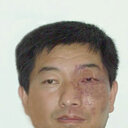Curcumin inhibits neuronal and vascular degeneration in retina after ischemia and reperfusion injury.
الكلمات الدالة
نبذة مختصرة
BACKGROUND
Neuron loss, glial activation and vascular degeneration are common sequelae of ischemia-reperfusion (I/R) injury in ocular diseases. The present study was conducted to explore the ability of curcumin to inhibit retinal I/R injury, and to investigate underlying mechanisms of the drug effects.
RESULTS
Different dosages of curcumin were administered. I/R injury was induced by elevating the intraocular pressure for 60 min followed by reperfusion. Cell bodies, brn3a stained cells and TUNEL positive apoptotic cells in the ganglion cell layer (GCL) were quantitated, and the number of degenerate capillaries was assessed. The activation of glial cells was measured by the expression level of GFAP. Signaling pathways including IKK-IκBα, JAK-STAT1/3, ERK/MAPK and the expression levels of β-tubulin III and MCP-1 were measured by western blot analysis. Pre-treatment using 0.01%-0.25% curcumin in diets significantly inhibited I/R-induced cell loss in GCL. 0.05% curcumin pre-treatment inhibited I/R-induced degeneration of retinal capillaries, TUNEL-positive apoptotic cell death in the GCL, brn3a stained cell loss, the I/R-induced up-regulation of MCP-1, IKKα, p-IκBα and p-STAT3 (Tyr), and down-regulation of β-tubulin III. This dose showed no effect on injury-induced GFAP overexpression. Moreover, 0.05% curcumin administered 2 days after the injury also showed a vaso-protective effect.
CONCLUSIONS
Curcumin protects retinal neurons and microvessels against I/R injury. The beneficial effects of curcumin on neurovascular degeneration may occur through its inhibitory effects on injury-induced activation of NF-κB and STAT3, and on over-expression of MCP-1. Curcumin may therefore serve as a promising candidate for retinal ischemic diseases.



